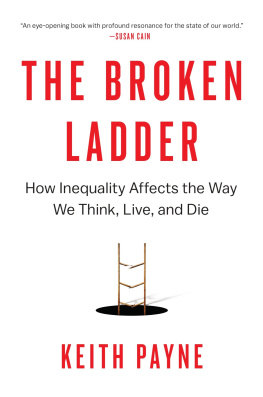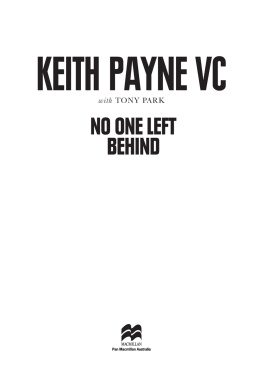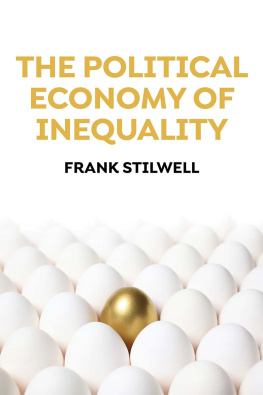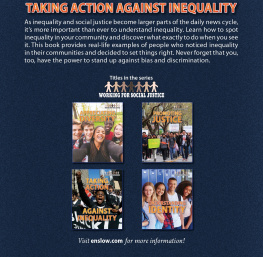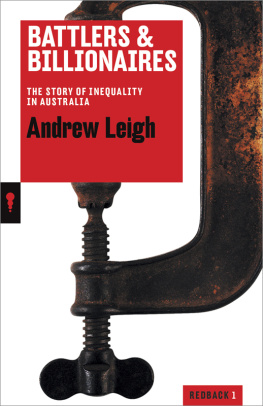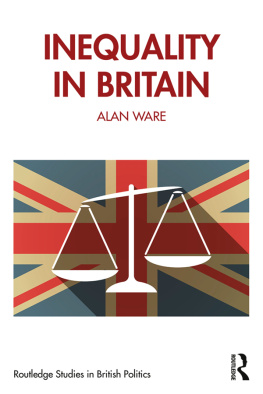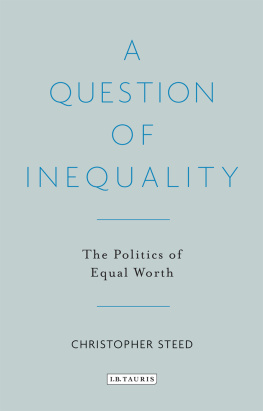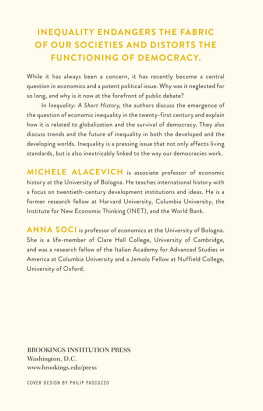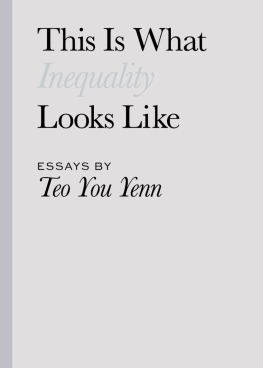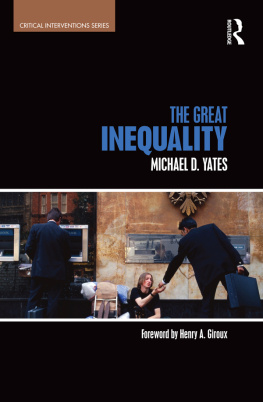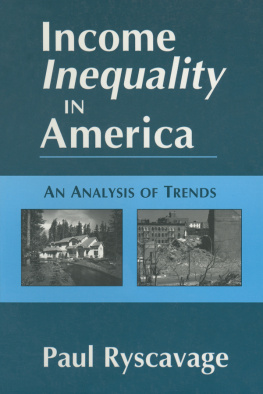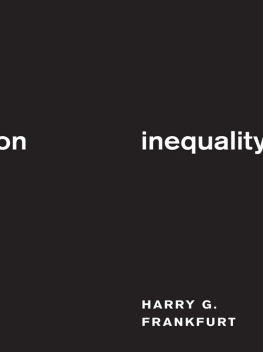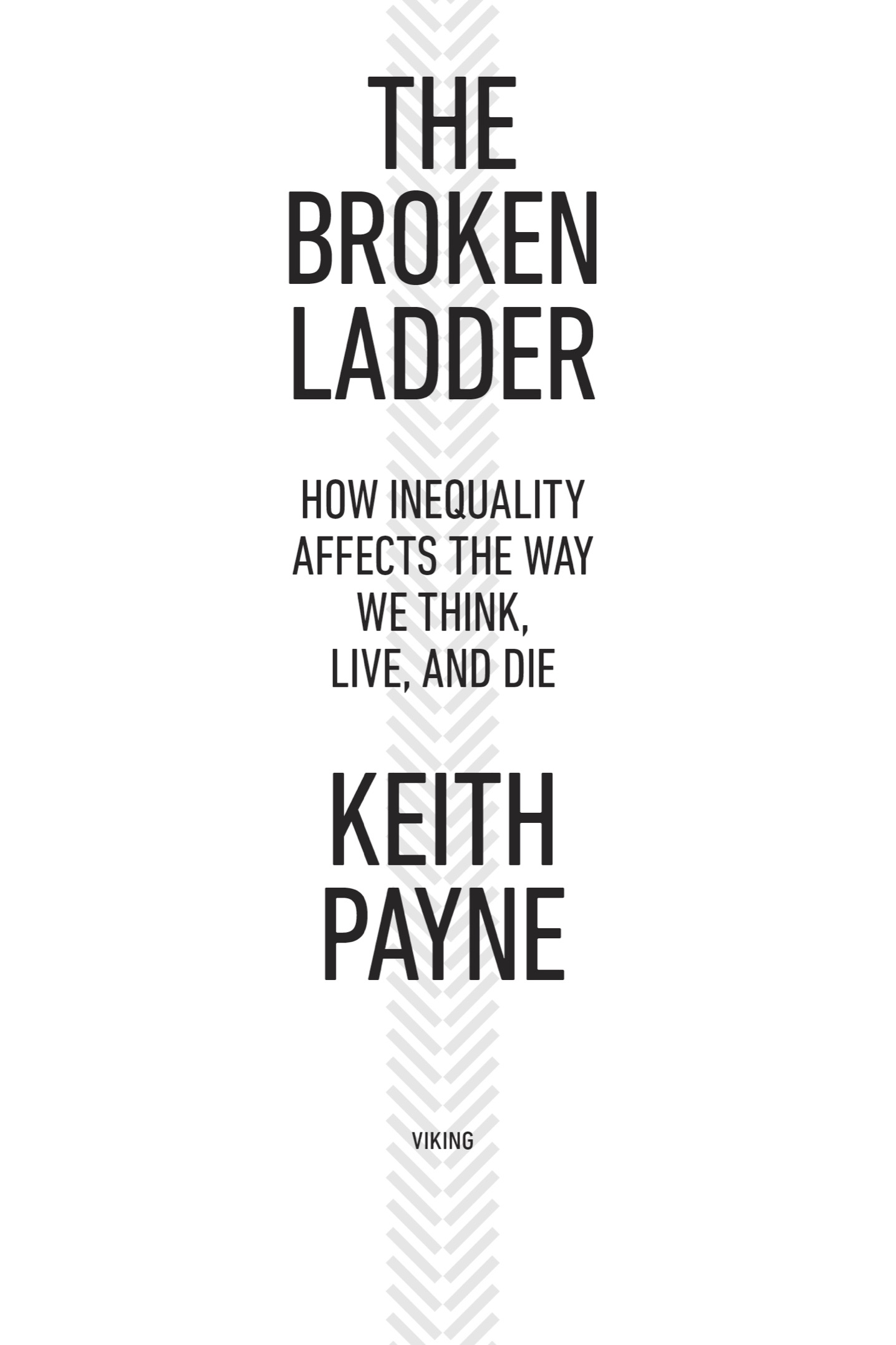Keith Payne - The Broken Ladder: How Inequality Affects the Way We Think, Live, and Die
Here you can read online Keith Payne - The Broken Ladder: How Inequality Affects the Way We Think, Live, and Die full text of the book (entire story) in english for free. Download pdf and epub, get meaning, cover and reviews about this ebook. City: New York, year: 2017, publisher: Viking, genre: Politics. Description of the work, (preface) as well as reviews are available. Best literature library LitArk.com created for fans of good reading and offers a wide selection of genres:
Romance novel
Science fiction
Adventure
Detective
Science
History
Home and family
Prose
Art
Politics
Computer
Non-fiction
Religion
Business
Children
Humor
Choose a favorite category and find really read worthwhile books. Enjoy immersion in the world of imagination, feel the emotions of the characters or learn something new for yourself, make an fascinating discovery.
- Book:The Broken Ladder: How Inequality Affects the Way We Think, Live, and Die
- Author:
- Publisher:Viking
- Genre:
- Year:2017
- City:New York
- Rating:4 / 5
- Favourites:Add to favourites
- Your mark:
The Broken Ladder: How Inequality Affects the Way We Think, Live, and Die: summary, description and annotation
We offer to read an annotation, description, summary or preface (depends on what the author of the book "The Broken Ladder: How Inequality Affects the Way We Think, Live, and Die" wrote himself). If you haven't found the necessary information about the book — write in the comments, we will try to find it.
The Broken Ladder is an important, timely, and beautifully written account of how inequality affects us all. Adam Alter, New York Times bestselling author of Irresistible and Drunk Tank Pink
A timely examination by a leading scientist of the physical, psychological, and moral effects of inequality.
The levels of inequality in the world today are on a scale that have not been seen in our lifetimes, yet the disparity between rich and poor has ramifications that extend far beyond mere financial means. In The Broken Ladder psychologist Keith Payne examines how inequality divides us not just economically; it also has profound consequences for how we think, how we respond to stress, how our immune systems function, and even how we view moral concepts such as justice and fairness.
Research in psychology, neuroscience, and behavioral economics has not only revealed important new insights into how inequality changes people in predictable ways but also provided a corrective to the flawed view of poverty as being the result of individual character failings. Among modern developed societies, inequality is not primarily a matter of the actual amount of money people have. It is, rather, peoples sense of where they stand in relation to others. Feeling poor mattersnot just being poor. Regardless of their average incomes, countries or states with greater levels of income inequality have much higher rates of all the social maladies we associate with poverty, including lower than average life expectancies, serious health problems, mental illness, and crime.
The Broken Ladder explores such issues as why women in poor societies often have more children, and why they have them at a younger age; why there is little trust among the working class in the prudence of investing for the future; why peoples perception of their social status affects their political beliefs and leads to greater political divisions; how poverty raises stress levels as effectively as actual physical threats; how inequality in the workplace affects performance; and why unequal societies tend to become more religious. Understanding how inequality shapes our world can help us better understand what drives ideological divides, why high inequality makes the middle class feel left behind, and how to disconnect from the endless treadmill of social comparison.
Keith Payne: author's other books
Who wrote The Broken Ladder: How Inequality Affects the Way We Think, Live, and Die? Find out the surname, the name of the author of the book and a list of all author's works by series.

